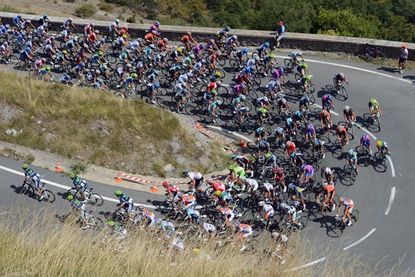WADA chief expresses concerns over UCI independent commission


World Anti-Doping Agency (WADA) President John Fahey said overnight that he has "some significant concerns" about the UCI's independent commission. The UCI established the commission amid the Lance Armstrong doping scandal to investigate allegations of corruption and to propose changes.
Fahey said in a press statement yesterday: "WADA has some significant concerns about the commission's terms of reference and has alerted the lawyers representing the commission of its concerns."
The UCI announced the commission on October 26 and in the wake of the US Anti-Doping Agency (USADA) case against Armstrong. USADA proved that Armstrong was a drug cheat and stripped him off all his results, including his seven Tour de France wins. Its investigation also highlighted corruption allegations against the UCI.
On announcing the commission, UCI President Pat McQuaid said, "The UCI is determined to turn around this painful episode in the history of our sport. We will take whatever actions are deemed necessary by the independent Commission and we will put cycling back on track."
The UCI announced the commission's three-member panel and its 11-point terms of reference over the following month.
The points in brief:
1 Are the allegations in the USADA's Reasoned Decision well founded?
Get The Leadout Newsletter
The latest race content, interviews, features, reviews and expert buying guides, direct to your inbox!
2 Did the UCI know what Armstrong and his team were doing? If not, should it have known?
3 Are the UCI's anti-doping policies inadequate or not enforced sufficiently?
4 Did the UCI have evidence of doping and did it fail to act?
5 Did the UCI fail to detect doping when Armstrong returned in 2009?
6 Did Armstrong or his team pay the UCI and if so, was it appropriate?
7 Did the UCI discourage people from speaking out?
8 Did the UCI adequately co-operated with USADA's investigation?
9 Should dopers be able to work within cycling in the future?
10 Did the UCI face a conflict of interest in promoting cycling and investigating Armstrong?
11 Are the current controls adequate and compliant with the World Anti-Doping Code (WADC)?
Critics argue the UCI is responding too slowly and its commission is not independent. They say that WADA should have been involved.
The UCI decided on John Coates, president of the International Council of Arbitration for Sport (ICAS), to hand picked the panel: Philip Otton, Tanni Grey-Thompson and Malcolm Holmes. Guy Morpuss acts as the commission's head lawyer.
"I can confirm that WADA has been contacted by lawyers representing the independent commission," Fahey said, "and has agreed to meet with them in the near future to discuss WADA's possible involvement in the process."
Fahey added if the meeting failed to solve WADA's concerns then the global anti-doping body will "consider seriously" taking part in the commission's process. He will comment further after the meeting.
McQuaid fights back
McQuaid meanwhile said that he has been unaffected by calls for his resignation. The calls were the loudest in London earlier this month, when newly-formed pressure group, Change Cycling Now met.
The attendees - including Jonathan Vaughters, Greg LeMond, Michael Ashenden, Paul Kimmage, David Walsh - proposed LeMond temporarily step in as president.
"People involved in cycling who I work with every day know what I have achieved as president," McQuaid told the AFP news agency. "I think there is enough proof that the state of cycling is completely different today to what it was in the Armstrong era."
Related links
Tanni Grey-Thompson named in UCI independent commission panel
UCI details independent review
USADA Armstrong doping report in brief
UCI responds to USADA Armstrong doping evidence
USADA publishes details of Armstrong doping case file

Thank you for reading 20 articles this month* Join now for unlimited access
Enjoy your first month for just £1 / $1 / €1
*Read 5 free articles per month without a subscription

Join now for unlimited access
Try first month for just £1 / $1 / €1
Gregor Brown is an experienced cycling journalist, based in Florence, Italy. He has covered races all over the world for over a decade - following the Giro, Tour de France, and every major race since 2006. His love of cycling began with freestyle and BMX, before the 1998 Tour de France led him to a deep appreciation of the road racing season.
-
 Tweets of the week: Brutal weather at Flèche, an idiot sandwich and is there a new POC helmet?
Tweets of the week: Brutal weather at Flèche, an idiot sandwich and is there a new POC helmet?There's a lot of love for Kasia Niewiadoma, and it turns out Norwegians are good in bad weather
By Adam Becket Published
-
 Juanpe López wins Tour of the Alps, does 34 kick-ups with a football
Juanpe López wins Tour of the Alps, does 34 kick-ups with a football'My coach said to do it for Betis,' says Spaniard of his boyhood football club
By Tom Davidson Published